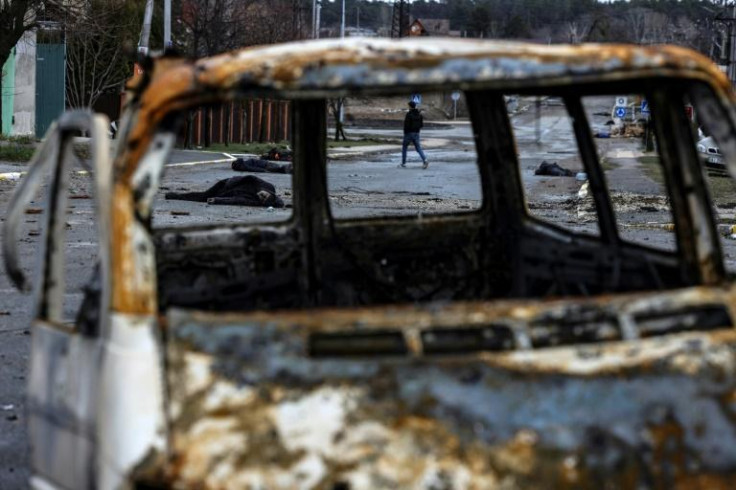Russian artist arrested for replacing grocery price tags to spread information on Ukraine invasion
Alexandra Skochilenko describes herself as an independent artist and musician.
A Russian artist is facing up to 10 years in jail for protesting against the country's invasion of Ukraine. A local court has put her behind bars for allegedly spreading "fake news," about the war.
The woman was charged under a new law banning "fake news" about Russia's armed forces after she replaced price tags at a supermarket with tags carrying information about Moscow's actions in Ukraine.
The new law against "fake news" makes it compulsory for Russians to describe Moscow's actions as a "special military operation", or face up to 15 years in prison. Skochilenko was detained on Monday on the suspicion of replacing the grocery tags with information about the air strikes on Mariupol.
"The Russian army bombed an art school in Mariupol where about 400 people were hiding from the shelling," read one of the price tags. In the images that have now gone viral on social media, Skochilenko could be seen smiling from behind bars and making a heart symbol with her hands.
Absolutely insane. St. Petersburg artist Alexandra Skochilenko is placed in remand prison pending felony prosecution for spreading “false information” about Russia’s military by swapping in war facts on price tags at a local grocery store. A customer reported her to the police. pic.twitter.com/noDIeHIZOj
— Kevin Rothrock (@KevinRothrock) April 13, 2022
The Investigators have accused Skochilenko of "putting fragments of paper in place of price tags, containing knowingly false information about the use of the Russian armed forces" in a Perekryostok supermarket on March 31.
Saint Petersburg's Vasileostrovsky district court has ruled that she should remain in pre-trial detention in prison until May 31. If found guilty in the case, she could face a fine of 3 million roubles (£27,000) and 5 to 10 years in jail, per The Moscow Times.
Skochilenko had previously taken part in an anti-war protest on February 24, it was the day when Russian soldiers had first entered Ukraine. She was fined 10,000 roubles for taking part in the protest. "I don't support the war in Ukraine. I came out on the street today to say so loudly," she had then written in an Instagram post.
Since the start of the Russian offensive in Ukraine on February 24, the authorities have stepped up censorship -- which was already strict -- to control the way in which the war is portrayed on television and in the press, but also by private individuals on social networks.
Using words such as "war" or "invasion" to describe the intervention or refer to actions against civilians is prohibited. The Russian government has instead labelled the conflict a "special military operation."
Russia has been seeing protests against the invasion all across the country, several people have been detained while several others have been fined for going out in streets to condemn Vladimir Putin's actions.

© Copyright IBTimes 2025. All rights reserved.






















